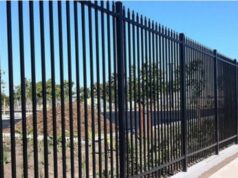Senate Appropriations Committee Passes FY 2017 HUD Funding Bill
Washington, D.C. – (RealEstateRama) — The Senate Appropriations Committee on April 21 unanimously approved its Fiscal Year (FY) 2017 Transportation, Housing and Urban Development (THUD) funding bill. The THUD Appropriations Subcommittee reported the bill April 19. The full Committee adopted the bill with only minor amendments to the Subcommittee-passed bill, which did not change its HUD program funding levels.
The bill provides $950 million for the HOME Investment Partnerships Program (HOME), the same as its FY 2016 spending level, and fully funds project-based rental assistance contracts.
The bill also increases the number of public housing units that can convert under the Rental Assistance Demonstration (RAD) program from 185,000 to 250,000 and eliminates the program’s sunset date. It also includes authority for Section 202 Project Rental Assistance Contract (PRAC) properties to convert under RAD and provides $4 million in assistance to those properties for that purpose.
According to the Committee press release on the bill, it provides $56.5 billion in new spending on programs within its jurisdiction, $827 million less than the THUD FY 2016 funding amount and $2.9 billion below the Administration’s FY 2017 budget request. However, under congressional accounting rules, the Committee was able to use program spending rescissions and an increase in estimated receipts to raise total program funding to $57.7 billion without changing the amount of new spending attributed to the bill. Taking these rescissions and receipts into account, the bill provides $39.2 billion for HUD programs, $891 million more than HUD’s FY 2016 total and $446 million less than the Administration’s budget request.
Other funding highlights from the bill include:
$10.9 billion to renew all project-based rental assistance contracts, an increase of $300 million over the FY 2016 funding level and $85 million over the Administration’s request. The bill also includes $235 million for performance-based contract administrators’ administrative fees, equal to the Administration’s FY 2017 request and $20 million more than appropriated in FY 2016.
$20.4 billion for the Housing Choice Voucher program, which is $800 million more than last year and $200 million less than the Administration’s FY 2017 request, but sufficient to renew existing vouchers according to the THUD Subcommittee. This amount includes $1.8 billion for administrative fees to cover PHAs’ costs of running the voucher program, $120 million more than last year and $300 million less than the Administration’s request, which the Administration said was necessary to fully fund all PHAs’ costs under its new administrative fees formula.
The bill also allocates $50 million for Veterans Affairs Supportive Housing (VASH) vouchers, $7 million for a Tribal VASH voucher program, and $20 million to support more than 2,500 new Family Unification Program vouchers.
$11 million to implement a new housing choice voucher mobility demonstration program to help families with vouchers move to areas of opportunity. This funding level is $4 million less than the Administration’s FY 2017 request. The bill directs HUD to establish selection criteria and participation requirements for the new program.
$2.3 billion for Homeless Assistance Grants, $80 million more than in FY 2016 and $300 million less than the Administration’s request. The bill targets $40 million of this increase for comprehensive efforts to end youth homelessness.
$135 million for the Office of Lead Hazard Control and Healthy Homes grants, a $25 million increase over FY 2016 and the Administration’s request. The bill would require HUD to amend and align its blood lead level standard for children with the standard recommended by the Centers for Disease Control and Prevention, reform quality controls for physical inspections, and expand its oversight and enforcement capacity.
For more information on individual program funding levels under the bill, see NCSHA’s FY 2017 Appropriations Chart.
Senate leadership has not yet scheduled floor consideration of this bill but has indicated it plans to bring as many of the funding bills as possible to the floor during the next 12 weeks.
The appropriations schedule in the House is less certain as that chamber continues to struggle with whether to advance spending bills before considering a budget resolution, which has been delayed by disagreements over whether and how to reduce federal spending in FY 2017.















